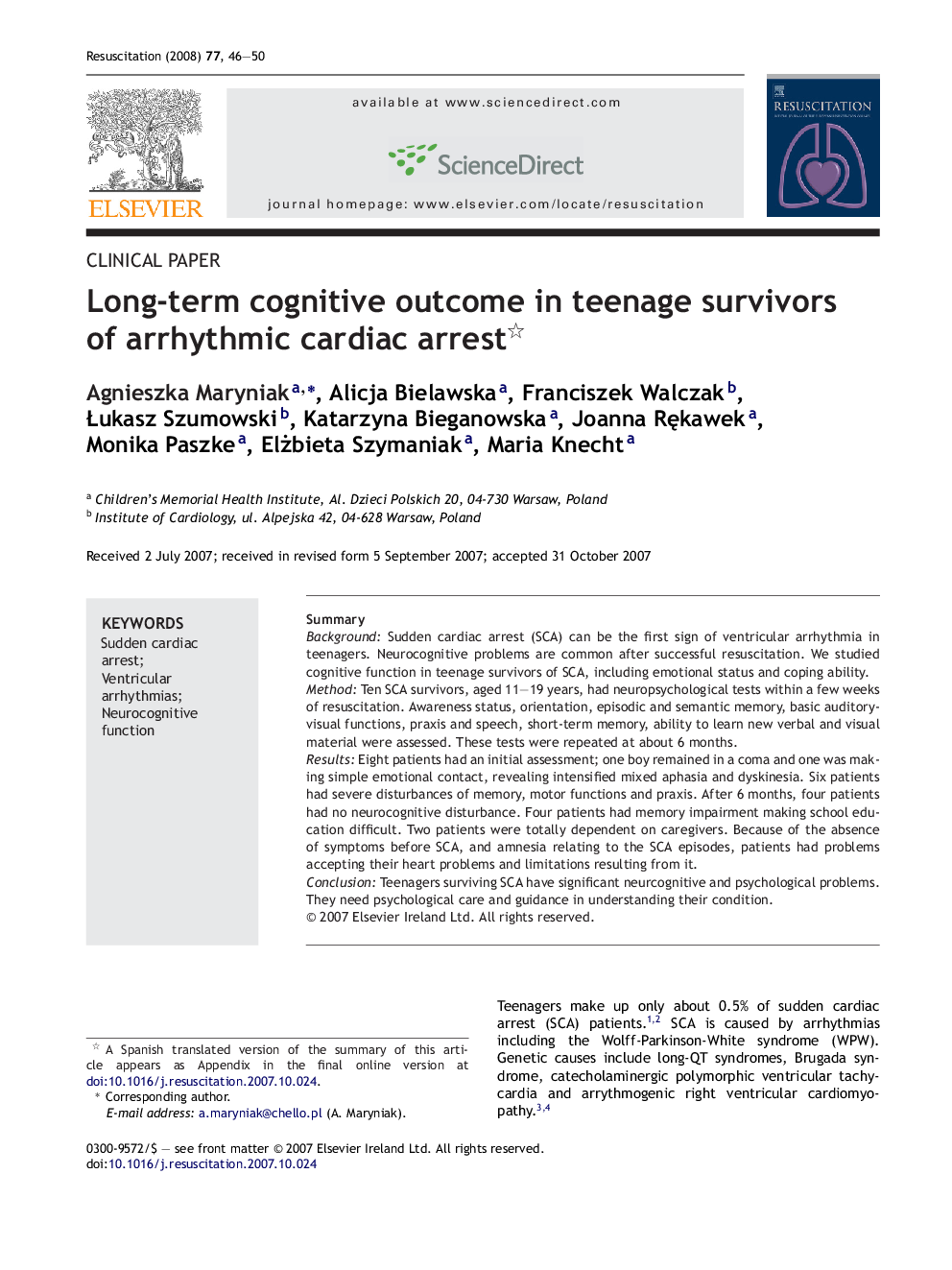| Article ID | Journal | Published Year | Pages | File Type |
|---|---|---|---|---|
| 3010733 | Resuscitation | 2008 | 5 Pages |
SummaryBackgroundSudden cardiac arrest (SCA) can be the first sign of ventricular arrhythmia in teenagers. Neurocognitive problems are common after successful resuscitation. We studied cognitive function in teenage survivors of SCA, including emotional status and coping ability.MethodTen SCA survivors, aged 11–19 years, had neuropsychological tests within a few weeks of resuscitation. Awareness status, orientation, episodic and semantic memory, basic auditory-visual functions, praxis and speech, short-term memory, ability to learn new verbal and visual material were assessed. These tests were repeated at about 6 months.ResultsEight patients had an initial assessment; one boy remained in a coma and one was making simple emotional contact, revealing intensified mixed aphasia and dyskinesia. Six patients had severe disturbances of memory, motor functions and praxis. After 6 months, four patients had no neurocognitive disturbance. Four patients had memory impairment making school education difficult. Two patients were totally dependent on caregivers. Because of the absence of symptoms before SCA, and amnesia relating to the SCA episodes, patients had problems accepting their heart problems and limitations resulting from it.ConclusionTeenagers surviving SCA have significant neurcognitive and psychological problems. They need psychological care and guidance in understanding their condition.
